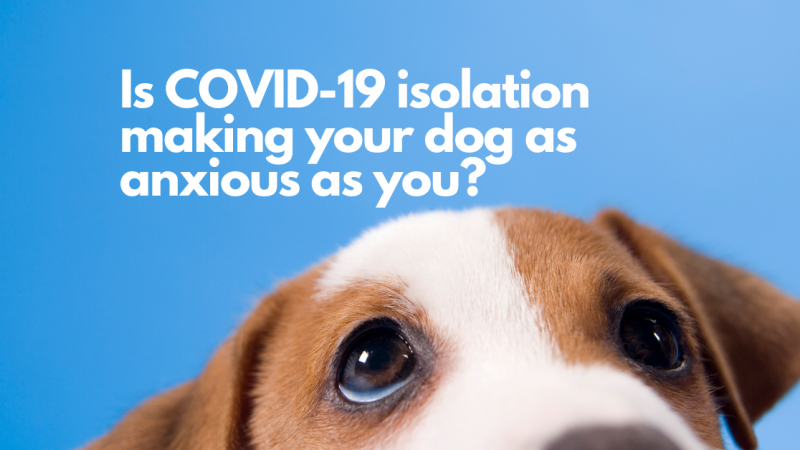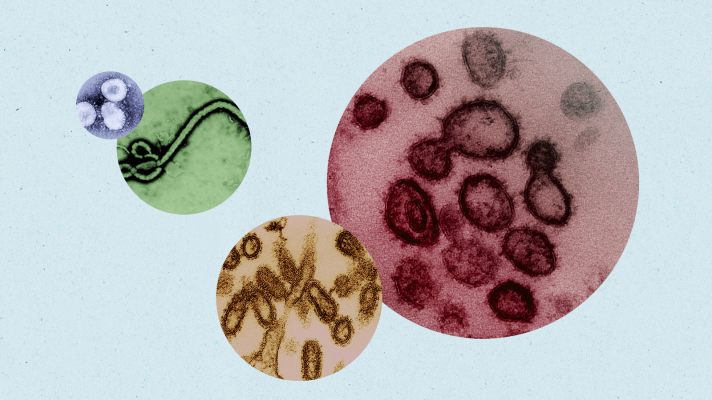- Joined
- Feb 23, 2017
- Messages
- 6,411
The Animal Medical center has a great page of curated info about COVID and pets:
 www.amcny.org
www.amcny.org
Follow along with the video below to see how to install our site as a web app on your home screen.
Note: This feature may not be available in some browsers.

I've been advising my clients and community members to help decrease their risks by using the same cellular energy and immune surveillance optimizing activities that we use to help their pets.
Might things like optimizing vital capacity through breathing practices, magnesium oil, being out in nature, laughing, etc. be helpful?
At this time it seems like these things can help people stay out of the hospital.
Would you agree that this strategy is helpful?

Dogs are very social creatures. So as it turns out, the confinement might be actually good for them. “The confinement actually corresponds to their need for social interactions,” according to Caroline Gilbert, a veterinarian that specialises in behaviour at the French National Veterinary school in Alfort. “Working and leaving your dog alone for several hours is not good, some dogs who cannot stand being alone. Dogs are just happy that they have their owners at home. It’s very interesting and engaging for them to have their owners to play, cuddle and socialise with them all day.”
Some dog might need extra engagement. Working dogs and those who are used to being out a lot and sniffing out different smells will probably need to be stimulated a bit more. But there are different ways to keep a dog’s intellect active without taking them out. Others might dislike the over-solicitation.
“It is important to also give time for dogs to keep to themselves, to prevent them from developing aggressive behaviours,” explains the specialist.
So really the owner knows its dogs and its habits, and should be able to adapt to the attention it will need during this special time. It is important to watch out for and react to signs of boredom such as general mischief, excessive barking, chewing and attention seeking. The internet if full of ways to keep your dog’s mind busy. And as it turns out, it is actually the end of the isolation period that might be trickier for animals.
Coming out of isolation might actually cause more separation-linked anxiety in pets

The overproduction of immune cells, and their signaling compounds called cytokines, stirs up hyper-inflammation that can cause substantial tissue damage, an effect of many autoimmune disorders. Lupus patients, in particular, produce too much of the cytokine interferon, a natural chemical that signals to the immune system in ways that can exacerbate inflammation.
Prevention Measures
To reduce the chances that a pet could become a fomite, the following is recommended17-19,30:
- If a pet owner is ill with COVID-19, she/he should maintain separation from a pet, just as would be done for another member of the household. If possible, someone else may take care of the pet.
- If a pet owner must care for a pet while ill, a face mask should be worn around the pet; hands should be washed before and after contact with the pet; hugging, kissing, and sleeping with the pet should be avoided (as well as being licked); and food, eating utensils, cups, bedding, or other items should not be shared. The pet should be kept indoors as much as possible.
- For pet owners without symptoms, good hygiene should be practiced around the pet with hand washing before and after contact and feeding. Food and water dishes, toys, and bedding should also be washed regularly.
- If a pet that that has been in contact with someone with COVID-19 becomes ill, pet owners should contact the state public health veterinarian or other public health official. They will be advised to bring the pet into a veterinary clinic, which should be contacted in advance of any physical contact with the pet owner and pet.
- All coronaviruses are enveloped and therefore readily killed by many biocidal agents, as well as washing with soap and water. Bathing the pet of someone who is ill may help reduce any chance the pet could be a fomite, but there is no scientific evidence at this time that supports this measure.
This suggests that the overall clinical consequences of Covid-19 may ultimately be more akin to those of a severe seasonal influenza (which has a case fatality rate of approximately 0.1%) or a pandemic influenza (similar to those in 1957 and 1968) rather than a disease similar to SARS or MERS, which have had case fatality rates of 9 to 10% and 36%, respectively.2
Home isolation during this pandemic may have a positive emotional effect on some dogs and cats depending on their individuality.
Here's an excerpt from:

Is COVID-19 isolation making your dog as anxious as you?
www.understandinganimalresearch.org.uk
However, try to also give your pets some alone time for when you go back to work since:
One strategy to try is going out for a walk without your pets when you would ordinarily go to work.
There are other things you can do, and I'll see if separation anxiety expert Lisa Lyle Waggoner or @jenbridwell or @jsqueglia or @SueB or @beccak have any other ideas to post in this thread.





Subscribe/Unsubscribe |